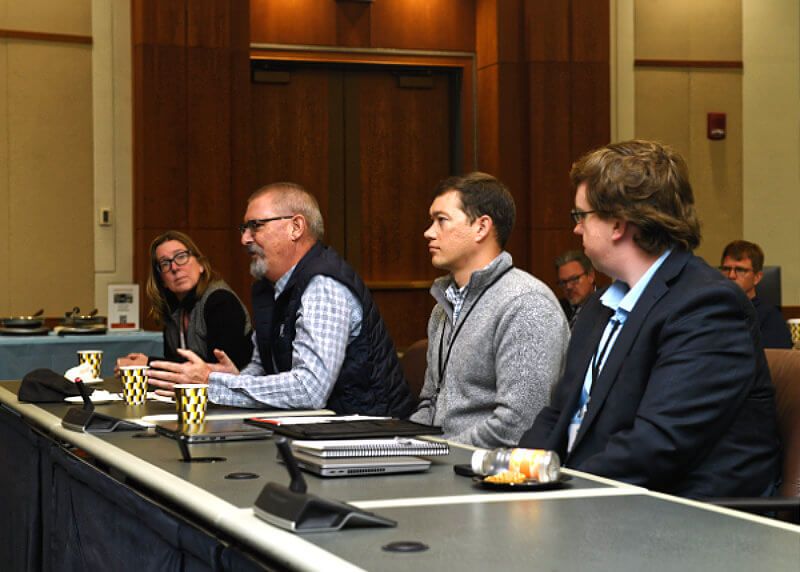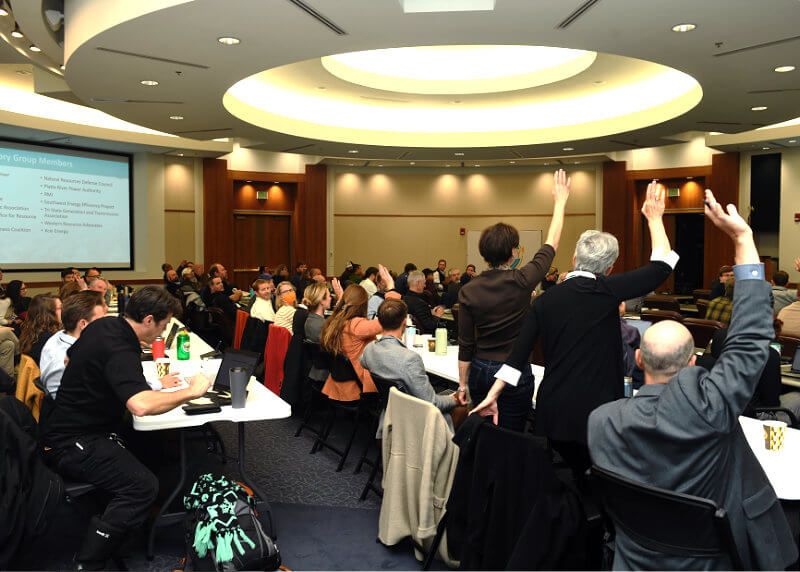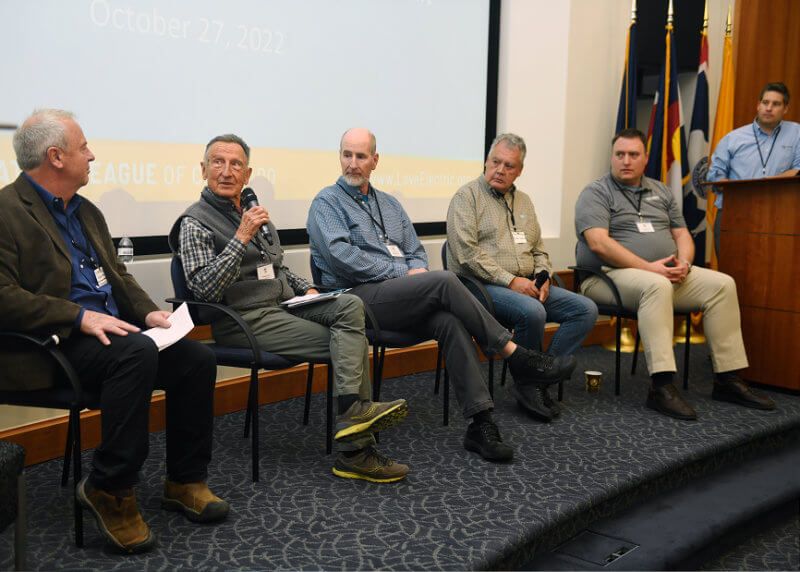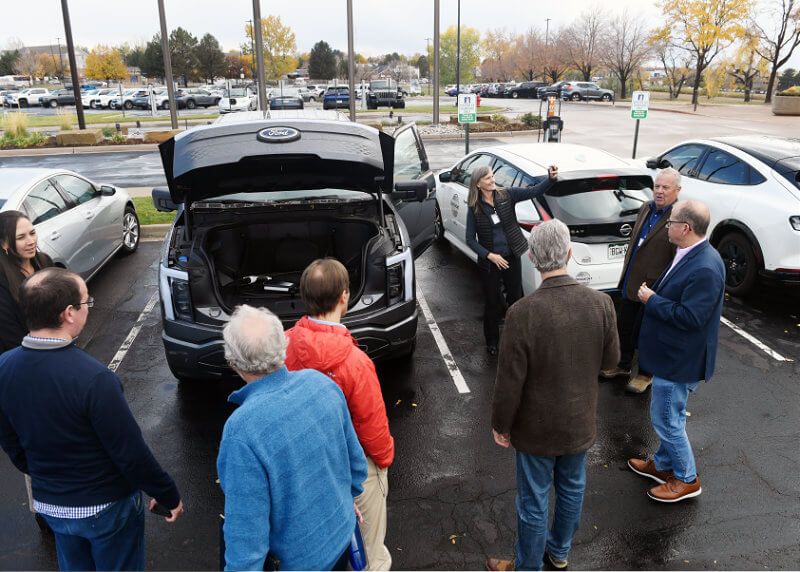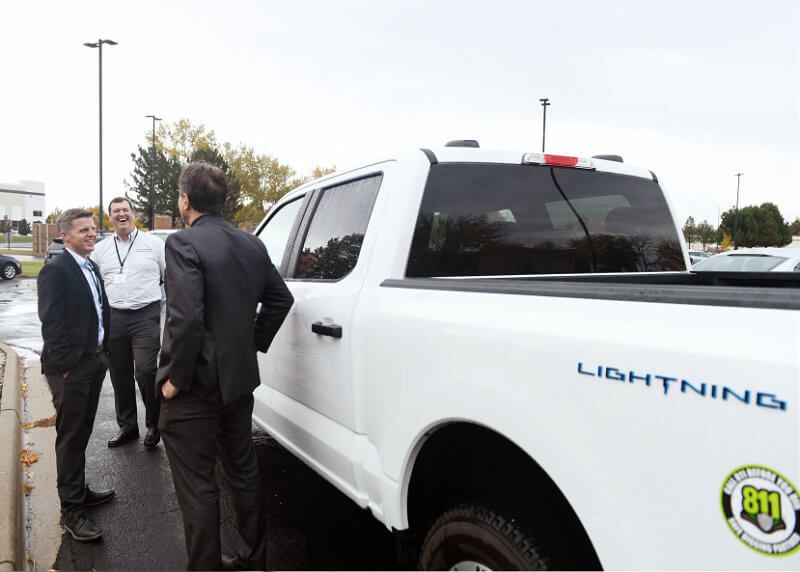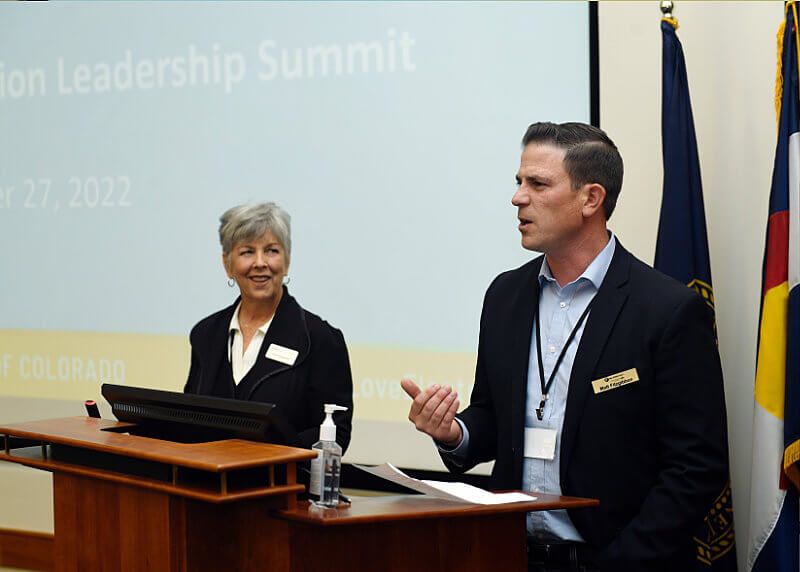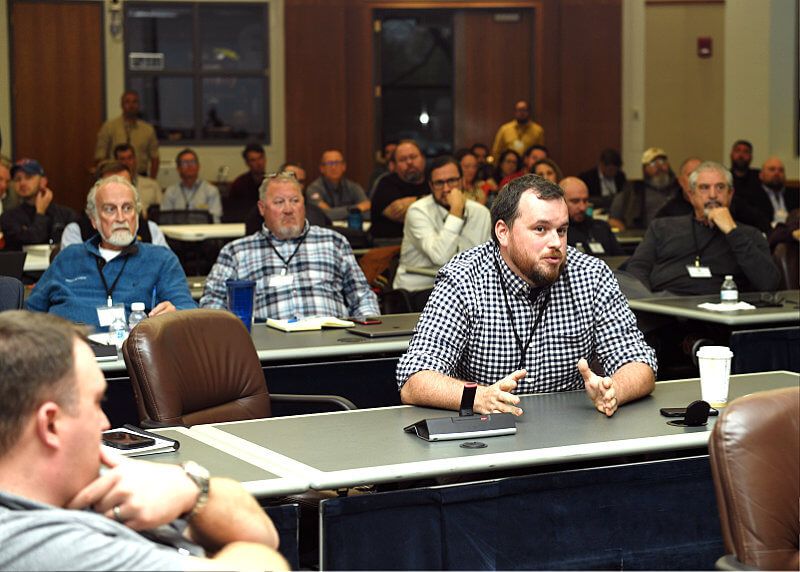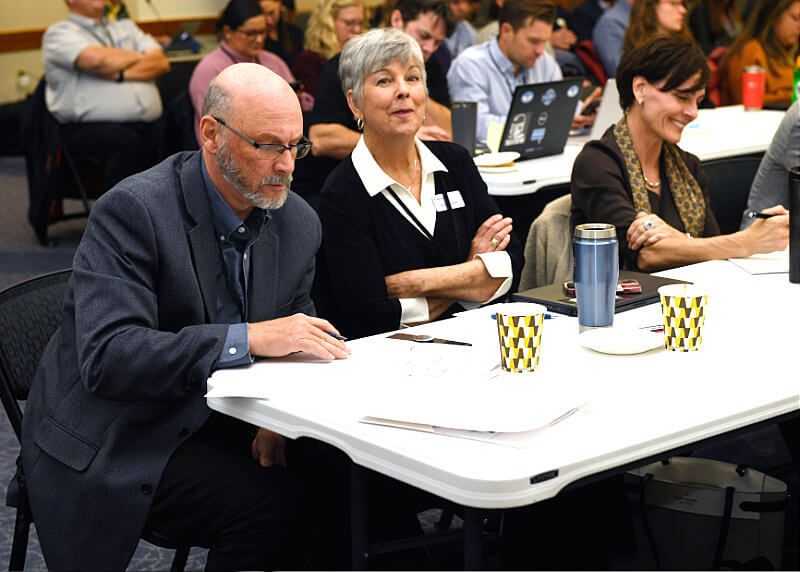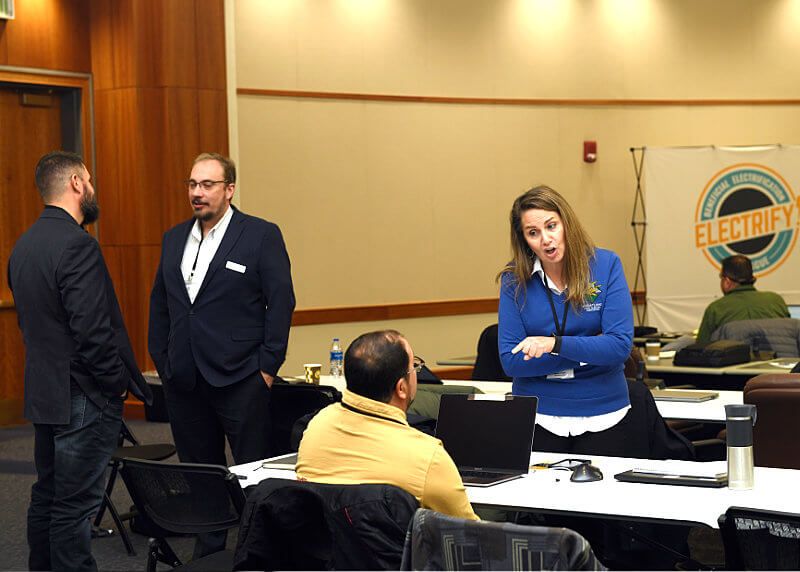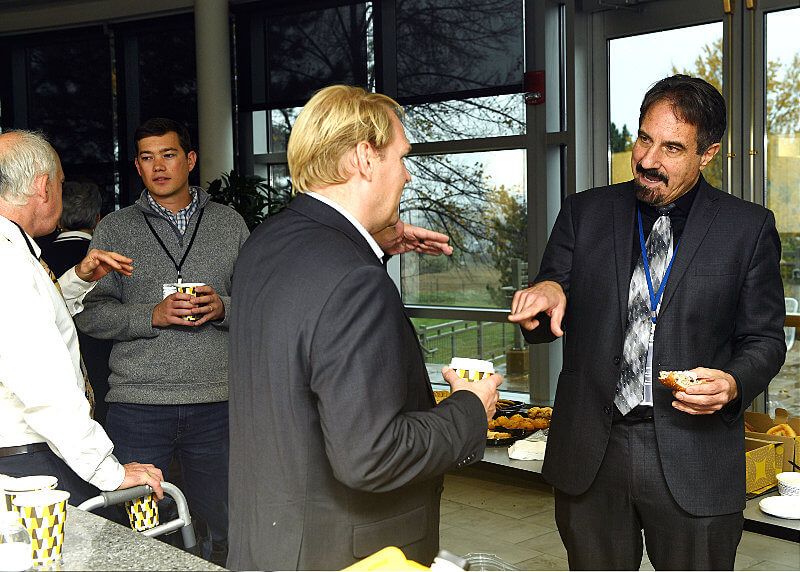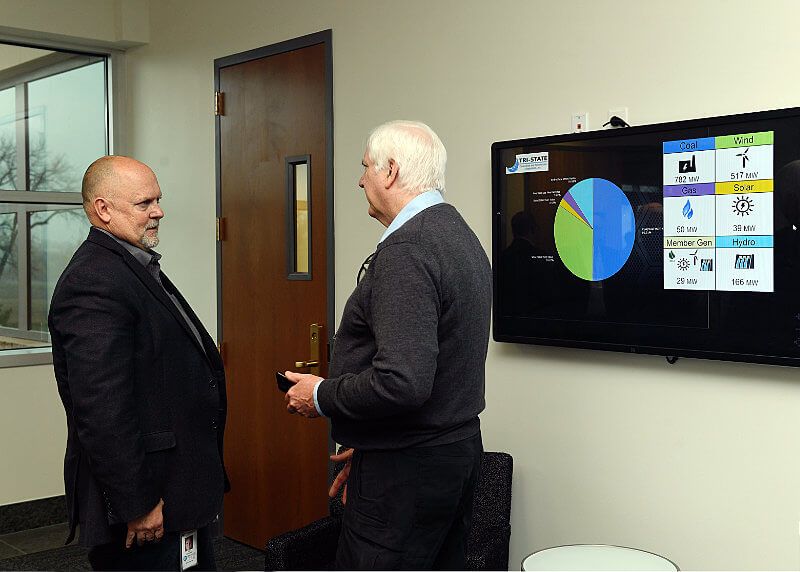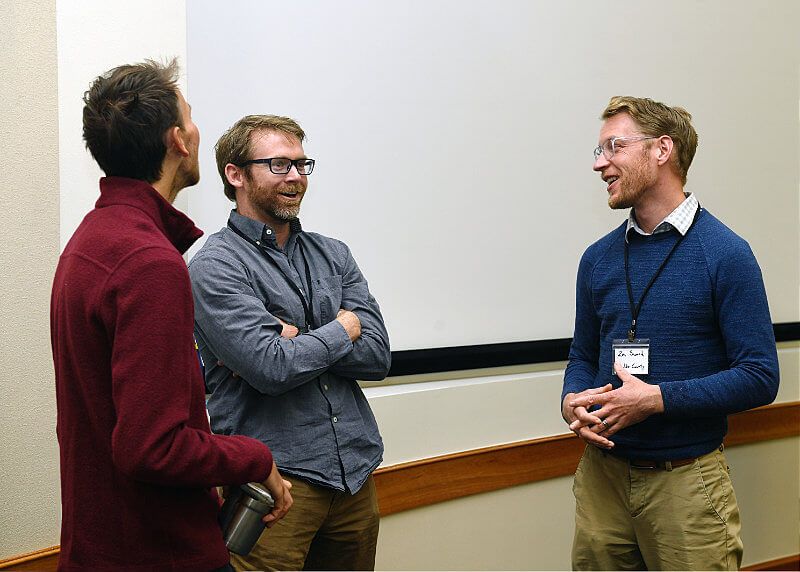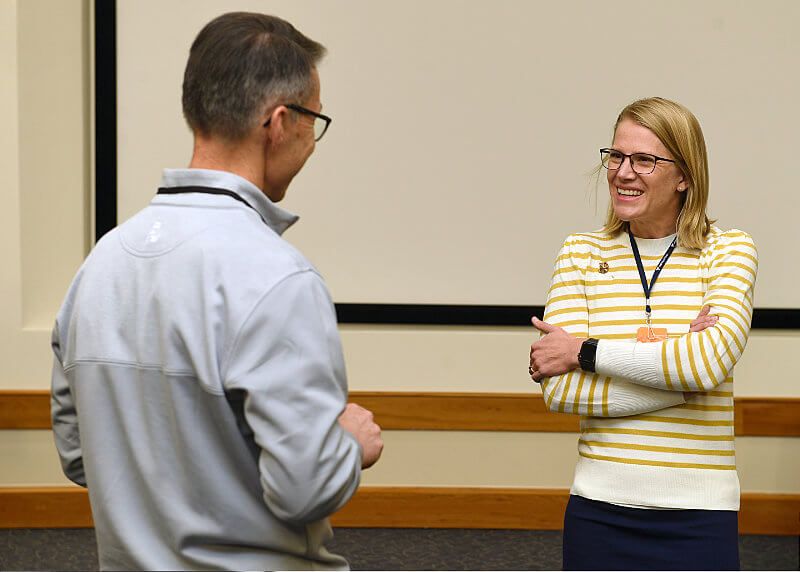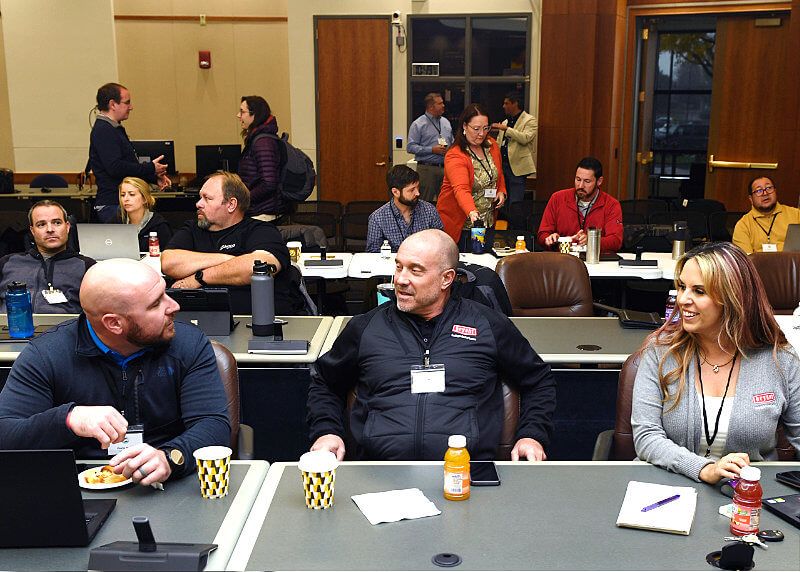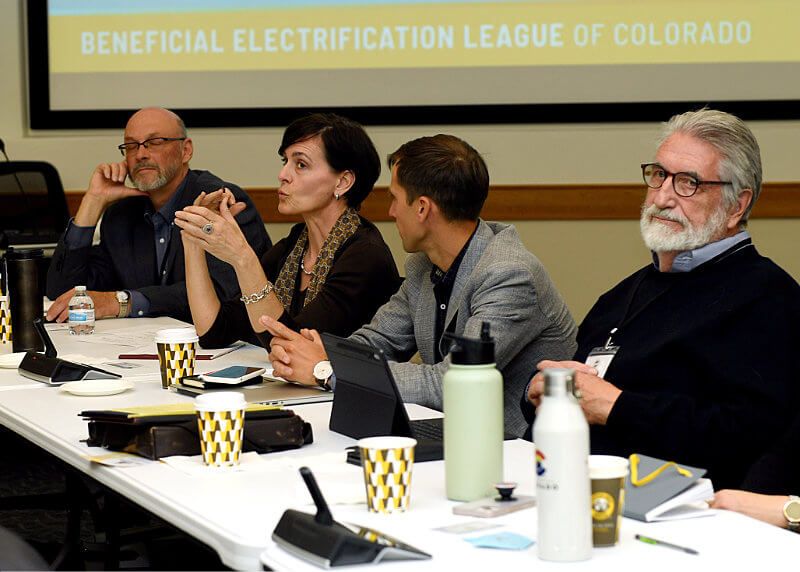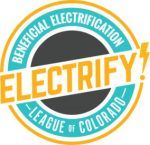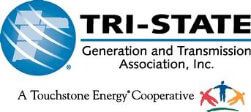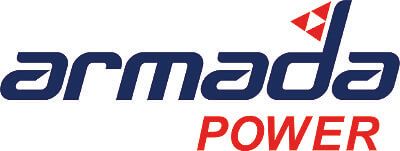Colorado Electrification Leadership Summit Presentations
Thursday, October 27, 2022
Location
Tri-State Generation and Transmission Association, Inc.
1100 W 116th Ave., Westminster, CO
Photos courtesy of Rachel Ellis.
Agenda
Morning Session
Welcome
Duane Highley, CEO, Tri-State Generation and Transmission Association
Opening Remarks
Neil Kolwey, BEL-CO Director, SWEEP Building Electrification Specialist
Funding through Federal Infrastructure and Inflation Reduction Acts
Neil Kolwey, Director of BEL-CO, gives an overview of BEL-CO and introduction to the event, and introduces Keith Dennis, the President of the Beneficial Electrification League (BEL). Keith discusses “what is beneficial electrification?” and provides an overview of all the new federal funding for beneficial electrification, especially for buildings, in the infrastructure (BIL) and inflation reduction (IRA) acts.
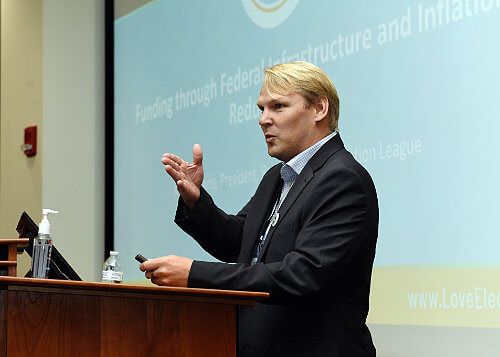
Keith Dennis, President, Beneficial Electrification League (BEL)
Colorado Building Electrification Policy Highlights
Will Toor, Executive Director of the Colorado Energy Office, provides background on state policies to reduce greenhouse gas emissions from all sectors, and discusses specific policies that will help drive electrification of buildings.
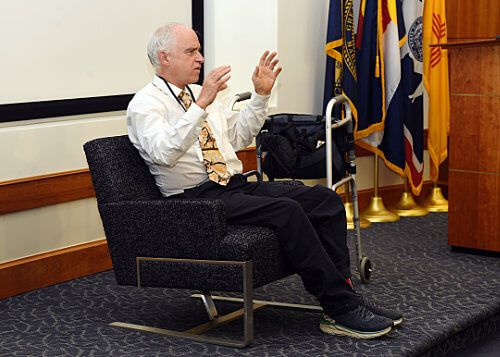
Will Toor, Executive Director, Colorado Energy Office
Case Studies: Successes with Heat Pump Adoption for New and Existing Homes
Four speakers discuss examples of successful energy efficiency and electrification projects: a) Doug Jones of the Northwest Colorado Council of Governments, b) Blake Ottersberg, Morgan Creek Ventures, c) Rob Bayless, Elephant Energy, and d) Eric Reinhart, Helio Home.
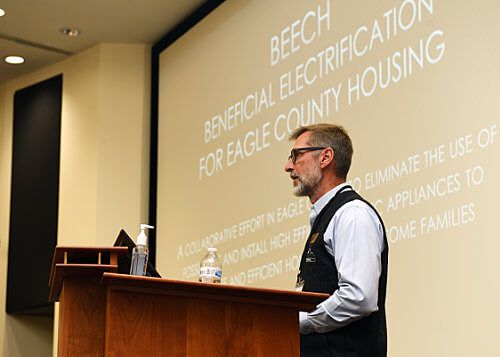
Doug Jones, Northwest Colorado Council of Governments
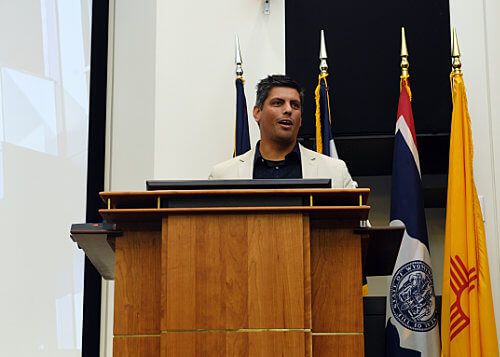
Blake Ottersberg, Morgan Creek Ventures
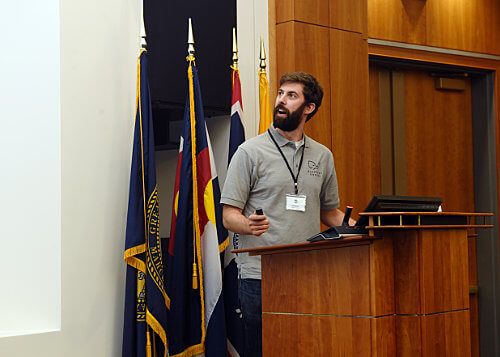
Rob Bayless, Elephant Energy
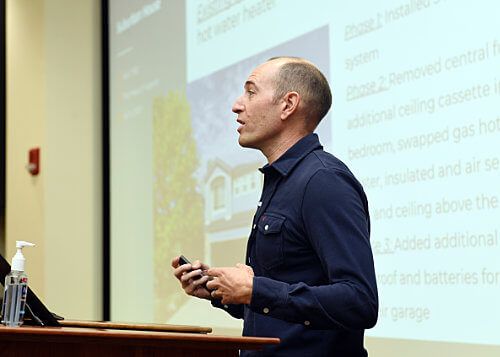
Eric Reinhart, Helio Home
Induction Cooking Demonstration
Chef Andrew Forlines gives a demonstration and elaboration of the benefits of induction cooking for residential homes.

Chef Andrew Forlines
Afternoon Session
Keynote: Business Case for Building Electric New Homes
Nick Jacobs, President of Diverge Homes, tells the story of how Diverge has evolved to now focusing on building all-electric new homes.
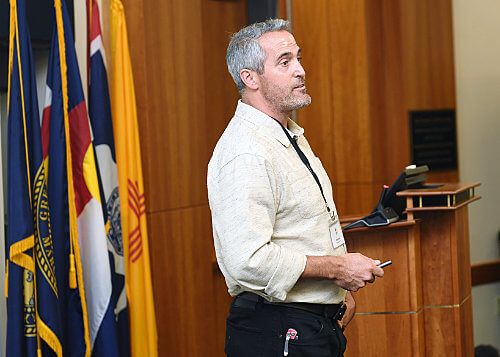
Nick Jacobs, President, Diverge Homes
Show Me the Money! Highlights of Federal, State, and Local/Utility Funding for Electric New Construction; State and Local Building Code Updates
a) Zach Swank of Boulder County provides a concise summary of tax credits and rebates available through the IRA, for electrification of new and existing homes. b) Christine Brinker of the Southwest Energy Efficiency Project (SWEEP), highlights the new state building code legislation and provides examples of how local governments in Colorado are updating their codes to encourage or require more electrification of homes.
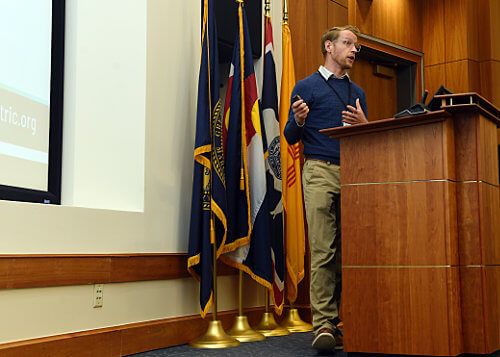
Zach Swank, Boulder County
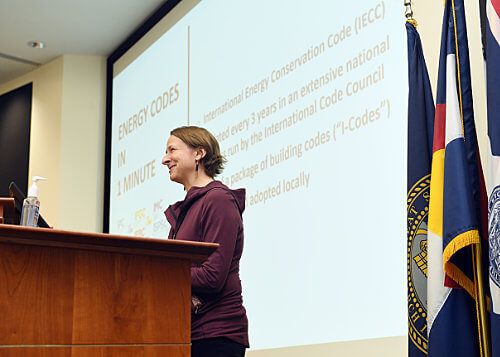
Christine Brinker, Southwest Energy Efficiency Project (SWEEP)
Panel and Attendee Discussion: Challenges/Opportunities of Building Healthy, Efficient and Electric New Homes
The panelists discussed the challenges and opportunities for builders/developers to build more healthy, efficient, and electric homes. (Note: This discussion focused on all-electric new homes – single family or townhomes. All-electric means an efficient heat pump system with no backup furnace, heat pump water heater, and electric range with induction or radiant cooktop. Most of the homes also include a solar PV system, and they start with a very efficient building shell (insulation, air sealing and windows.)
The panelists generally agreed on the following key points:
- People do want to buy these types of homes and are willing to pay slightly more for them.
- The cost of building an all-electric 2,000 square foot home is about $10,000 more than an equivalent dual-fuel home (gas and electric), and costs about $20,000 more to go completely net zero (with a large enough solar PV system to cover the home’s annual electricity consumption). These are minor costs compared to the average cost of the new home, about $500,000, and utility rebates will offset some of these costs.
- The annual energy costs for an all-electric new home will be significantly less than that of the dual-fuel home, especially if the home is net-zero.
- Building these types of homes is not that difficult but requires hiring well-qualified subcontractors who understand how to design and install cold-climate heat pump systems. Finding these contractors can be a challenge.
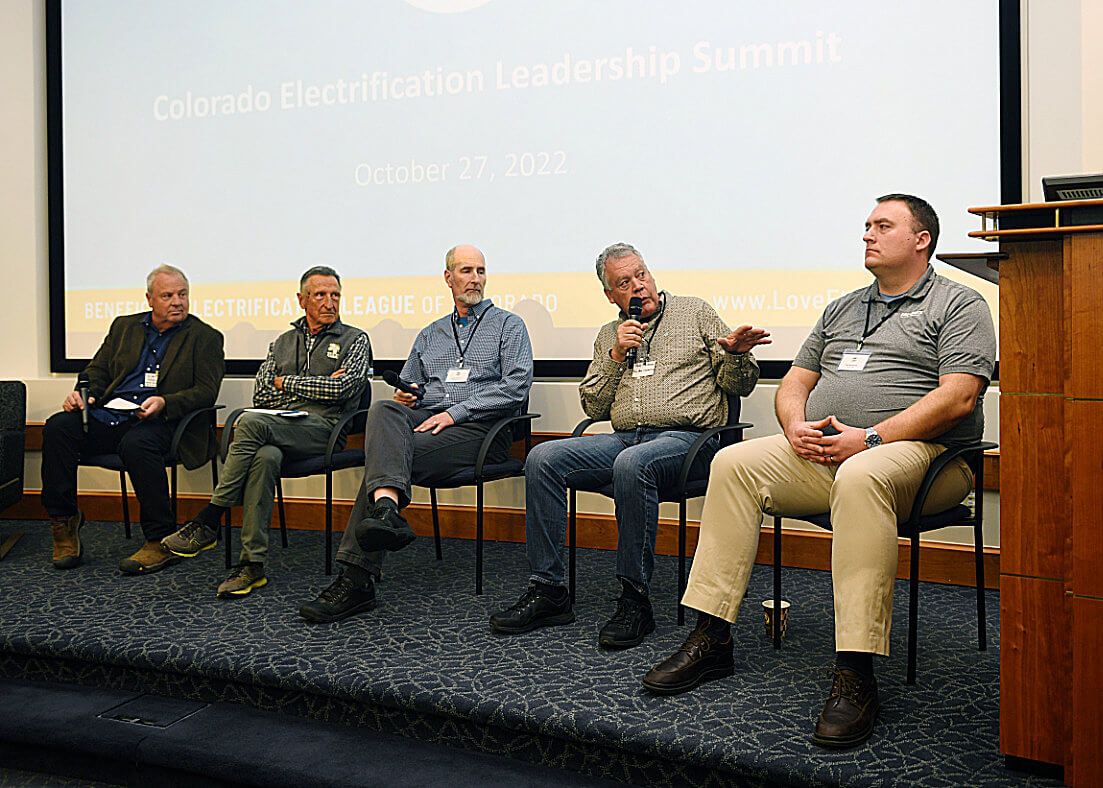
Panelist from Left to Right: Steven Walsh, Architect, Steven Walsh Architect; Norbert Klebel, Founder, Geos Neighborhood, Inc.; Robby Schwarz, Principle Thinker, Build Tank, Inc.; Rod Stambaugh, Partner, Pure Zero Construction, Pueblo; and Rob Buchanan, New Homes Program Manager, Xcel Energy
One of the panelists commented that the large production builders will tend to be followers of the growing trend to build more high-performance, all-electric homes. He urged the smaller “green” builders, “Show them that they will lose market share.”
